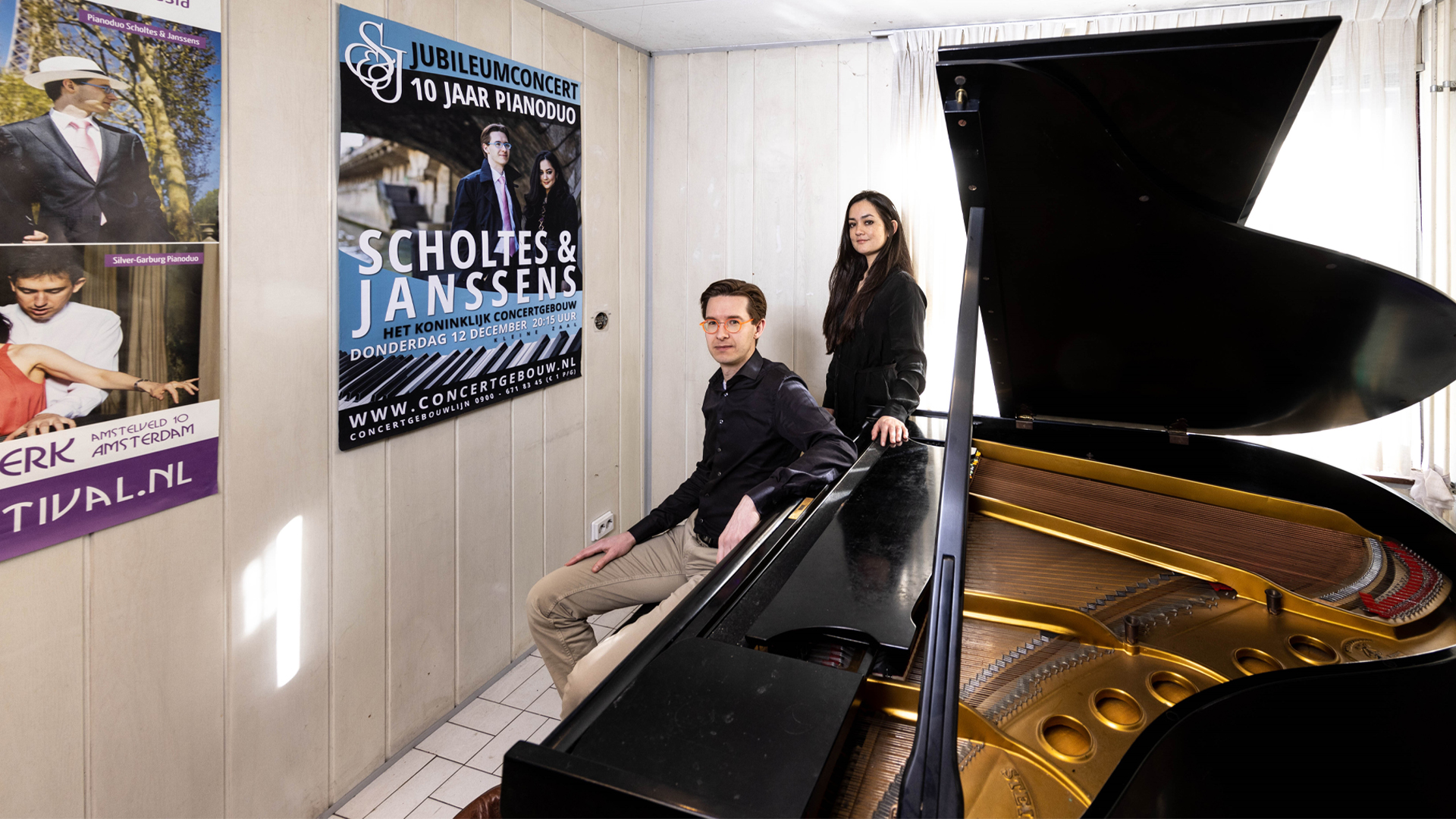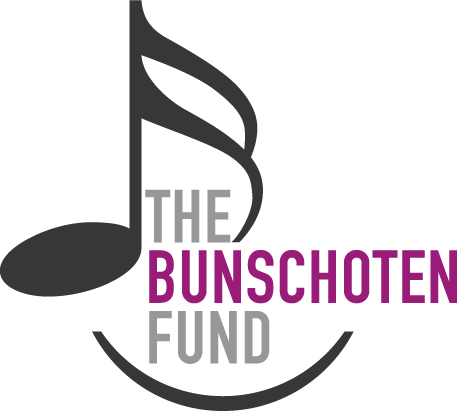
‘THE BUNSCHOTEN FUND WAS THE FIRST TO RECOMMEND THAT WE STARTED PROFESSIONALIZING.’
(LESTARI SCHOLTES AND GWYLIM JANSSENS, PIANODUO FESTIVAL AMSTERDAM)
Much of what The Bunschoten Fund achieves is not directly visible to the audience. To allow a glimpse in the meaning of being a fund, we had a conversation with Lestari Scholtes and Gwylim Janssens of the Pianoduo Festival Amsterdam. What have they gained from the contact with BF and how have things unfolded since?
Lestari Scholtes (1984) and Gwylim Janssens (1985) started the Pianoduo Scholtes & Janssens in 2003. Since then they’ve been recognized as a prominent piano duo. They’ve also added a long list of performances and initiatives to their name. From the Grachtenfestival Amsterdam to Carnegie Hall, performances in thirty countries, broadcasts of their concerts on radio and television such as Radio4, BBC3, Kol Hamusica and Klara. They performed during a variety of festivals and with many orchestras, and won many national and international contests for piano duo and chamber music. Lestari and Gwylim are jury members for the annual IBLA Grand Prize International Music Competition on Sicily and gave masterclasses at conservatoria in Europe, the United States, South-America, Asia and Africa. Their cd recordings also got warm receptions.
‘We were invited to a critical conversation.’
In 2013, Lestari and Gwylim founded the Pianoduo Festival Amsterdam, that has been held every year since. Together they are the artistic leadership of what they call ‘the get together of the world of twenty fingers on one and two pianos.’ The festival brings classical music, jazz, attention for kids and workshops, with the collaboration of prominent musicians, and also offers room for, among other things, amateur duos and conservatorium students through open podia, masterclasses and their own Pianoduo Festival Concours.
In the early years, Lestari and Gwylim applied with The Bunschoten Fund. The cause was simple: they were looking for ways to finance the festival. ‘When you begin, every year you need to finance all over again,’ says Gwylim. ‘Nowadays we have somewhat more continuity in the form of, for instance, a perennial subsidy of the Amsterdam Fund for the Arts. But in those early years we hadn’t reached that point yet; and such institutions usually want to know about your track record before anything else. And those were also the years when the financial crisis occurred, which made many funds quite hesitant.’
The application prompted the Board of the Bunschoten Fund to invite Lestari and Gwylim for a talk. Lestari: ‘We were invited to a critical conversation. We were very happy with that, because it was the first time anyone said to us: you need to professionalize. The Bunschoten Fund showed a lot of enthusiasm, they thought highly of what we were going to do, but they felt too many activities were piling up in the foundation of our own duo. And anyway, we were doing too much ourselves.’
BF’s advice: professionalize
Doing too much themselves seems to be putting it mildly; Lestari and Gwylim did almost éverything themselves. Not only did they organize the concerts, they also took care of marketing, selling tickets and everything else including the drinks served during concert intermissions. There was room for professionalizing. ‘The Bunschoten Fund helped us with establishing a separate foundation for the festival,’ says Gwylim. ‘And everything that’s part of that, because you need statutes and miscellaneous, also for the purpose of applying for an ANBI status.’
The support of The Bunschoten Fund consisted, among other things, of a grant of five thousand euros for professional fiscal and legal assistance during the establishing of the foundation, and to secure the conditions of the ANBI application. To fulfil the ANBI requirements is a requisite for any donors you have, who’ll want to make use of certain fiscal benefits. For a smaller organization, however, this can be a serious threshold. The BF’s grant certainly helped, just like the advice from the board of BF has proven to be very useful.
‘The board has given us all kinds of advice to set about a more professional approach,’ says Lestari. ‘We really did everything ourselves, something that had to be dealt with. For instance, we’ve learned that you have to work with good partners and that you should outsource certain matters to professionals. We’ve often asked for advice, but we’ve also always continued to invent things ourselves, with trial and error.’
Even now, in these times of limitations, the Pianoduo Festival Amsterdam remains active. The preparations for new festivals are in full swing. Including the tenth anniversary, due in 2022.
Tips from Lestari and Gwylim
Do Lestari and Gwylim have tips to offer musicians who have taken initiatives (or are going to take initiatives) for a festival or some other activity?
‘You’d do well to always keep searching,’ says Gwylim. ‘Even when you have, like we do, a perennial subsidy, you should realize that it’s important to keep looking for alternative ways of financing. Not one donor is for eternity. Among other things, we’re supported by a private group of friends who donate. Searching for people in a wider circle remains a challenge that requires you to invest time.’
Lestari: ‘Ask a lot of people for help and look for strong partners, also in the cultural sector itself. The true art lies in working together in this field, not just compete with one another. And keep the network that you’ve been able to organize connected to whatever it is you’re doing. Keep them informed.’
—BF in conversation with Lestari Scholtes and Gwylim Janssens of the Pianoduo Festival Amsterdam, January 2022
